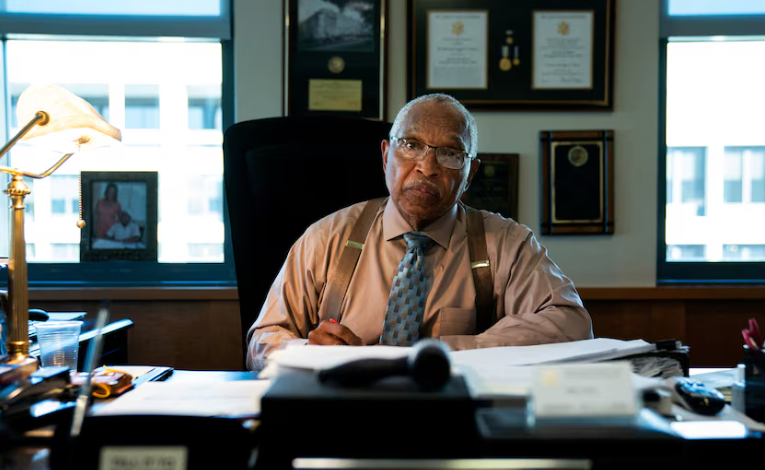A conservative ally of Donald Trump has filed a formal complaint against U.S. District Judge Reggie Walton, following a rare television interview where Walton criticized Trump’s verbal attacks on the New York judge overseeing his impending criminal trial.
Mike Davis, the founder of the conservative legal advocacy group, the Article III Project, expressed concerns that Walton’s comments on CNN could potentially bias jury pools for Trump’s four criminal cases across various states.
In his complaint addressed to the Judicial Council of the District of Columbia Circuit, Davis argued that a federal judge should not have the liberty to appear on a nationally televised program, especially one watched by prospective jurors, and publicly chastise a criminal defendant for exercising his constitutional right to criticize an ongoing criminal proceeding.
Davis urged an investigation into Walton’s actions, asserting that they constituted an ethical violation.
Judge Walton declines comment
Judge Walton, a senior federal judge appointed by former Republican President George W. Bush and based in Washington, D.C., declined to comment on the matter when reached through a law clerk.
In his CNN interview on March 28, Walton expressed his discomfort with Trump’s comments regarding New York Justice Juan Merchan, particularly Trump’s targeting of Merchan’s daughter.
Walton voiced concern over the rising number of threats directed at judges in recent years, including himself, in the aftermath of high-profile cases such as those related to the January 6, 2021, Capitol attack by Trump supporters.
Trump’s social media attacks on Justice Merchan and his family prompted the New York judge to issue an order on Monday, demanding Trump refrain from targeting family members of individuals involved in the trial. Despite Walton’s acknowledgment of receiving threats, it’s important to note that he is not presiding over Trump’s criminal case in Washington related to his efforts to overturn the 2020 election results.
The complaint against Judge Walton underscores the broader tensions surrounding Trump’s legal battles and the intersection of judicial ethics and freedom of speech. It highlights the complexities of maintaining impartiality and ensuring fair trials amidst public scrutiny and political rhetoric.

